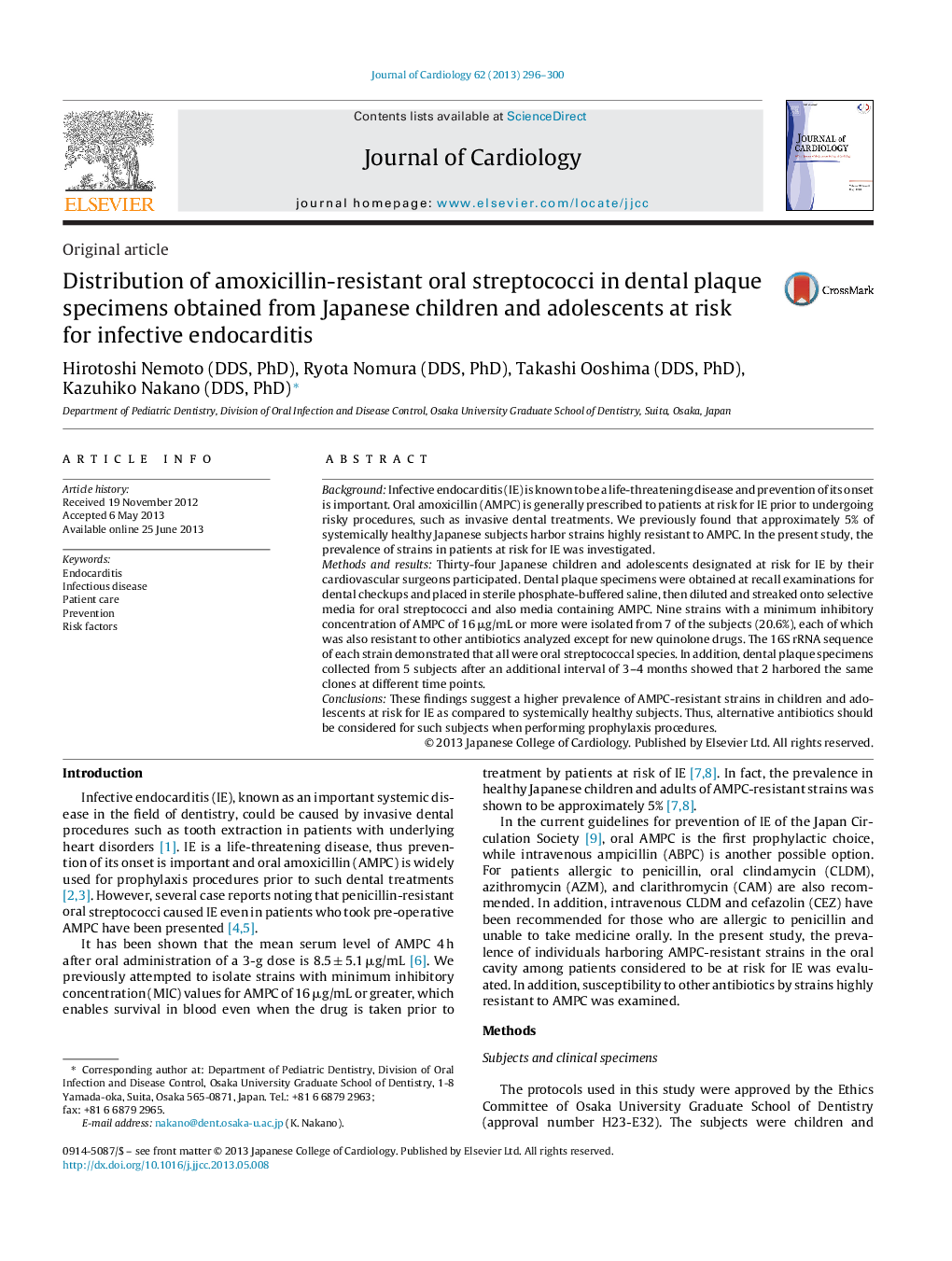| Article ID | Journal | Published Year | Pages | File Type |
|---|---|---|---|---|
| 5984148 | Journal of Cardiology | 2013 | 5 Pages |
BackgroundInfective endocarditis (IE) is known to be a life-threatening disease and prevention of its onset is important. Oral amoxicillin (AMPC) is generally prescribed to patients at risk for IE prior to undergoing risky procedures, such as invasive dental treatments. We previously found that approximately 5% of systemically healthy Japanese subjects harbor strains highly resistant to AMPC. In the present study, the prevalence of strains in patients at risk for IE was investigated.Methods and resultsThirty-four Japanese children and adolescents designated at risk for IE by their cardiovascular surgeons participated. Dental plaque specimens were obtained at recall examinations for dental checkups and placed in sterile phosphate-buffered saline, then diluted and streaked onto selective media for oral streptococci and also media containing AMPC. Nine strains with a minimum inhibitory concentration of AMPC of 16 μg/mL or more were isolated from 7 of the subjects (20.6%), each of which was also resistant to other antibiotics analyzed except for new quinolone drugs. The 16S rRNA sequence of each strain demonstrated that all were oral streptococcal species. In addition, dental plaque specimens collected from 5 subjects after an additional interval of 3-4 months showed that 2 harbored the same clones at different time points.ConclusionsThese findings suggest a higher prevalence of AMPC-resistant strains in children and adolescents at risk for IE as compared to systemically healthy subjects. Thus, alternative antibiotics should be considered for such subjects when performing prophylaxis procedures.
